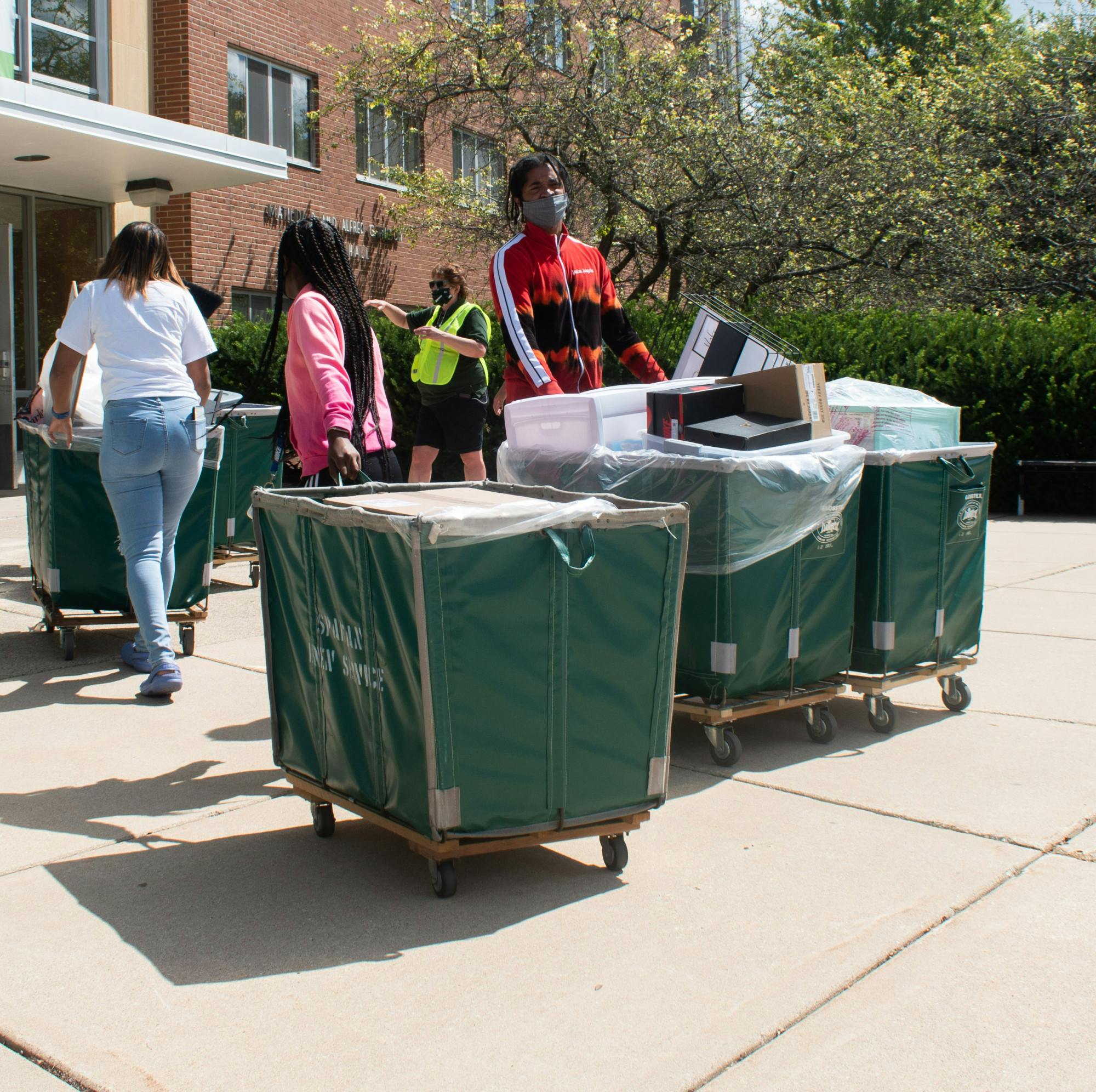Students will now be required to live on campus for two years starting in fall 2021, according to a university press release.
This reinstated requirement is aimed at “helping students persist and graduate,” according to the press release.

Students will now be required to live on campus for two years starting in fall 2021, according to a university press release.
This reinstated requirement is aimed at “helping students persist and graduate,” according to the press release.
This requirement had been in effect previously, but was removed in the 1980s by MSU President Maurice Mackey.
Kat Cooper, director of communications for RHS, said this reinstatement had been in consideration for the past seven years. Due to the pandemic, they were slowed in releasing this information. "With this compelling data, we really felt that this requirement needed to be reinstated in order to graduate more Spartans," Cooper said.
This requirement joins multiple university initiatives to improve student success, including the campus-wide “Go Green, Go 15” campaign and the nationally recognized Neighborhoods model.
“Now, more than ever, it is imperative that we, as an institution, act in ways that support our students and their success at Michigan State,” Senior Vice President for Auxiliary Enterprises Vennie Gore said in the press release. “Reinstating the second-year live-on requirement will help us better equip our students with the tools they need, while in a supportive and safe environment, to help them succeed.”
Cooper also said about 50% of sophomore students choose to live on campus, so this will impact a percentage of students, but is aimed toward success. She also said this gives RHS the opportunity to work out what waivers will require.
"We've got a team that's working now on the implementation," Cooper said. "We really couldn't get started on the 'how' we do this until we announced it to everyone. So, there's still a lot of unknowns about exactly how it will work, and that team is going to come together and figure out those little details and we'll certainly be sharing those as soon as we can with the public."
This new requirement can be viewed on the Housing Requirements and Procedures page in the Spartan Life Student Handbook.
The press release also states that the Division of Residential and Hospitality Services supports the requirement, which is evident through their programs like Spartan Compass and Spartan Neighbor, both striving for supporting undergraduate students in their first two years on campus.
University administrators conducted research through MSU’s Office of Institutional Research to back this action and found that undergraduate students who live on campus for two years had graduation rates 2.5 percentage points higher than students who lived on campus for just one.
"Graduating more Spartans is one of the main missions of the institution," she said. "So, surrounding students with the resources they need to be academically successful on campus is one way that we can make sure that every student we admit to Michigan State has the opportunity to walk across the graduation stage, be it virtual or in-person, at Michigan State."
Cooper said the on-campus experience is one that stays with students past graduation.
"Whenever you meet a fellow Spartan out in the world, one of the first questions they ask you is where you lived on campus," she said. "Living on campus and the residential experience has long been a seminal part of the Michigan State experience, and it's important to me personally and to millions of students over the years, to continue to preserve this tradition for generations of Spartans to come."
Currently, first-year students are required to live on campus. The new requirement will begin with the incoming class of 2021, according to the press release.
Existing resident hall residents and the incoming class of fall 2020 are exempt from this new requirement, the press release said.
This is a developing story. Stay with The State News for updates.
Support student media! Please consider donating to The State News and help fund the future of journalism.